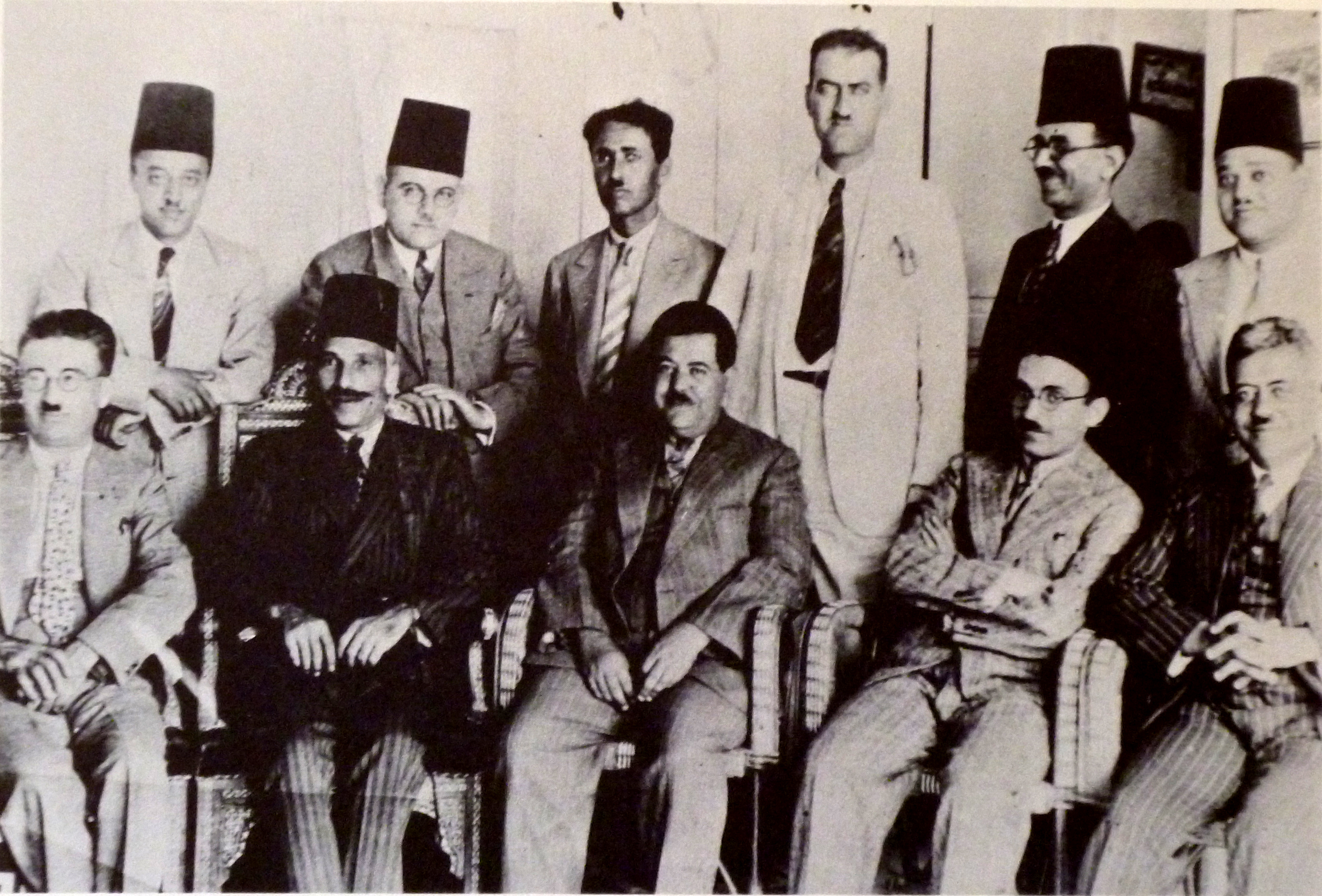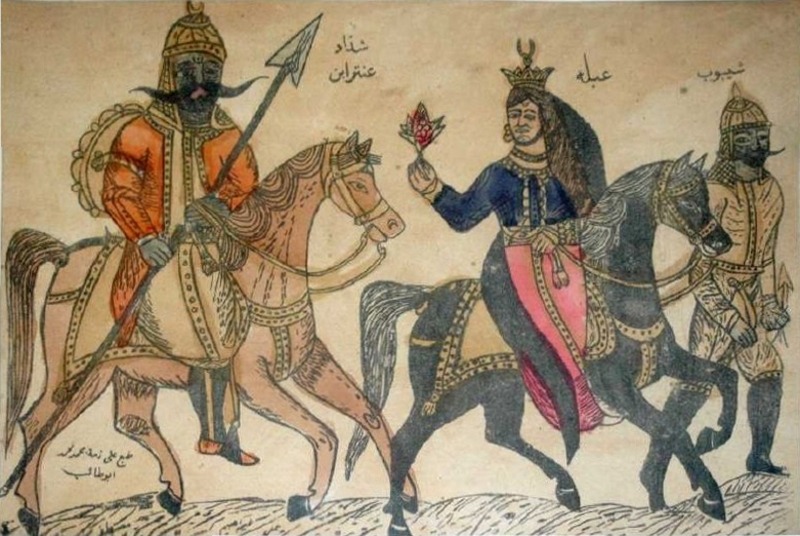|
Izzat Darwazah
Muhammad 'Izzat Darwazeh ( ar, محمد عزة دروزة; 1888–1984) was a Palestinian politician, historian, and educator from Nablus. Early in his career, he worked as an Ottoman bureaucrat in Palestine and Lebanon. Darwaza had long been a sympathizer of Arab nationalism and became an activist of that cause following the Arab Revolt against the Ottoman Empire in 1916, joining the nationalist al-Fatat society. As such, he campaigned for the union of Greater Syria (modern-day Levant) and vehemently opposed Zionism and foreign mandates in Arab lands. From 1922 to 1927, he served as an educator and as the principal at the an-Najah National School where he implemented a pro-Arab nationalist educational system, promoting the ideas of Arab independence and unity. Darwaza's particular brand of Arab nationalism was influenced by Islam and his beliefs in Arab unity and the oneness of Arabic culture. Later, Darwaza co-founded the nationalist Istiqlal party in Palestine and was ... [...More Info...] [...Related Items...] OR: [Wikipedia] [Google] [Baidu] |
Independence Party (Palestine)
, founded = 13 August 1932 , dissolved = 1947 , ideology = Arab nationalismPalestinian nationalism Anti-tribalism Constitutional monarchism Hashemite monarchismAnti-ZionismPan-Arabism , founders = Izzat DarwazaFahmi al-AbboushiMu'in al-MadiAkram Zu'aytir‘Ajaj Nuwayhid Rashid al-Hajj Ibrahim Subhi al-KhadraSalim Salamah , slogan = "England is the root of the illness and the basis of all disaster"(rhyming in Arabic: ''Inkilitira asl al-da’ w-asas kul bila’'') The Independence Party of Palestine (''Hizb al-Istiqlal'') was an Arab nationalist political party established on 13 August 1932 in Palestine during the British Mandate. The party was founded by Muhammad Izzat Darwaza, and the other founders of the party were Fahmi al-Abboushi, Mu'in al-Madi, Akram Zu'aytir, ‘Ajaj Nuwayhid, Rashid al-Hajj Ibrahim, Subhi al-Khadra, and Salim Salamah. The party did not achieve a large membership but Awni Abd al-Hadi, through his role ... [...More Info...] [...Related Items...] OR: [Wikipedia] [Google] [Baidu] |
Levant
The Levant () is an approximation, approximate historical geography, historical geographical term referring to a large area in the Eastern Mediterranean region of Western Asia. In its narrowest sense, which is in use today in archaeology and other cultural contexts, it is equivalent to a stretch of land bordering the Mediterranean in South-western Asia,Gasiorowski, Mark (2016). ''The Government and Politics of the Middle East and North Africa''. }, ), meaning "the eastern place, where the Sun rises". In the 13th and 14th centuries, the term ''levante'' was used for Italian maritime commerce in the Eastern Mediterranean, including Greece, Anatolia, Syria (region), Syria-Palestine, and Egypt, that is, the lands east of Republic of Venice, Venice. Eventually the term was restricted to the Muslim countries of Syria-Palestine and Egypt. In 1581, England set up the Levant Company to monopolize commerce with the Ottoman Empire. The name ''Levant States'' was used to refer to the Ma ... [...More Info...] [...Related Items...] OR: [Wikipedia] [Google] [Baidu] |
Palestinian Nationalism
Palestinian nationalism is the national movement of the Palestinian people that espouses self-determination and sovereignty over the region of Palestine.de Waart, 1994p. 223 Referencing Article 9 of ''The Palestinian National Charter of 1968''. The Avalon Project has a copy her/ref> Originally formed Anti-Zionism, in opposition to Zionism, Palestinian nationalism later internationalized and attached itself to other ideologies; it has thus rejected the occupation of the Palestinian territories by the government of Israel since the 1967 Six-Day War, and the preceding non-domestic Arab occupations over the Gaza Strip ( by Egypt) and the West Bank ( by Jordan) additionally had opposition. Palestinian nationalists often drawn upon broader political traditions in their ideology, examples being Arab socialism and ethnic nationalism in the context of Muslim religious nationalism. Related beliefs have shaped the government of Palestine and continue to do so. In the broader co ... [...More Info...] [...Related Items...] OR: [Wikipedia] [Google] [Baidu] |
Egypt
Egypt ( ar, مصر , ), officially the Arab Republic of Egypt, is a transcontinental country spanning the northeast corner of Africa and southwest corner of Asia via a land bridge formed by the Sinai Peninsula. It is bordered by the Mediterranean Sea to the north, the Gaza Strip of Palestine and Israel to the northeast, the Red Sea to the east, Sudan to the south, and Libya to the west. The Gulf of Aqaba in the northeast separates Egypt from Jordan and Saudi Arabia. Cairo is the capital and largest city of Egypt, while Alexandria, the second-largest city, is an important industrial and tourist hub at the Mediterranean coast. At approximately 100 million inhabitants, Egypt is the 14th-most populated country in the world. Egypt has one of the longest histories of any country, tracing its heritage along the Nile Delta back to the 6th–4th millennia BCE. Considered a cradle of civilisation, Ancient Egypt saw some of the earliest developments of writing, agr ... [...More Info...] [...Related Items...] OR: [Wikipedia] [Google] [Baidu] |
Haj Amin Al-Husseini
Mohammed Amin al-Husseini ( ar, محمد أمين الحسيني 1897 – 4 July 1974) was a Palestinian Arab nationalist and Muslim leader in Mandatory Palestine. Al-Husseini was the scion of the al-Husayni family of Jerusalemite Arab notables, who trace their origins to the eponymous grandson of Muhammad. Husseini received education in Islamic, Ottoman, and Catholic schools. In 1912, he went to pursue further studies in Cairo's ''Dar al-Da'wa wa al-Irshad'', an Islamic seminary under the tutelage of Salafist theologian Muhammad Rashid Rida. After studying there for two years, he went on to serve in the Ottoman army in World War I. At war's end he stationed himself in Damascus as a supporter of the Arab Kingdom of Syria. Following the Franco-Syrian War and the collapse of Arab Hashemite rule in Damascus, his early position on pan-Arabism shifted to a form of local nationalism for Palestinian Arabs and he moved back to Jerusalem. From as early as 1920 he actively opposed Zion ... [...More Info...] [...Related Items...] OR: [Wikipedia] [Google] [Baidu] |
Tafsir
Tafsir ( ar, تفسير, tafsīr ) refers to exegesis, usually of the Quran. An author of a ''tafsir'' is a ' ( ar, مُفسّر; plural: ar, مفسّرون, mufassirūn). A Quranic ''tafsir'' attempts to provide elucidation, explanation, interpretation, context or commentary for clear understanding and conviction of God's will. Principally, a ''tafsir'' deals with the issues of linguistics, jurisprudence, and theology. In terms of perspective and approach, ''tafsir'' can be broadly divided into two main categories, namely ''tafsir bi-al-ma'thur'' (lit. received tafsir), which is transmitted from the early days of Islam through the Islamic prophet Muhammad and his companions, and ''tafsir bi-al-ra'y'' (lit. ''tafsir'' by opinion), which is arrived through personal reflection or independent rational thinking. There are different characteristics and traditions for each of the ''tafsirs'' representing respective schools and doctrines, such as Sunni Islam, Shia Islam, and Suf ... [...More Info...] [...Related Items...] OR: [Wikipedia] [Google] [Baidu] |
Qur'an
The Quran (, ; Standard Arabic: , Quranic Arabic: , , 'the recitation'), also romanized Qur'an or Koran, is the central religious text of Islam, believed by Muslims to be a revelation from God. It is organized in 114 chapters (pl.: , sing.: ), which consist of verses (pl.: , sing.: , cons.: ). In addition to its religious significance, it is widely regarded as the finest work in Arabic literature, and has significantly influenced the Arabic language. Muslims believe that the Quran was orally revealed by God to the final prophet, Muhammad, through the archangel Gabriel incrementally over a period of some 23 years, beginning in the month of Ramadan, when Muhammad was 40; and concluding in 632, the year of his death. Muslims regard the Quran as Muhammad's most important miracle; a proof of his prophethood; and the culmination of a series of divine messages starting with those revealed to Adam, including the Torah, the Psalms and the Gospel. The word ''Quran'' oc ... [...More Info...] [...Related Items...] OR: [Wikipedia] [Google] [Baidu] |
French Mandate Of Syria
The Mandate for Syria and the Lebanon (french: Mandat pour la Syrie et le Liban; ar, الانتداب الفرنسي على سوريا ولبنان, al-intidāb al-fransi 'ala suriya wa-lubnān) (1923−1946) was a League of Nations mandate founded in the aftermath of the First World War and the partitioning of the Ottoman Empire, concerning Syria and Lebanon. The mandate system was supposed to differ from colonialism, with the governing country intended to act as a trustee until the inhabitants were considered eligible for self-government. At that point, the mandate would terminate and an independent state would be born. During the two years that followed the end of the war in 1918—and in accordance with the Sykes–Picot Agreement signed by Britain and France during the war—the British held control of most of Ottoman Mesopotamia (modern Iraq) and the southern part of Ottoman Syria ( Palestine and Transjordan), while the French controlled the rest of Ottoman Syria, ... [...More Info...] [...Related Items...] OR: [Wikipedia] [Google] [Baidu] |
Mandatory Palestine
Mandatory Palestine ( ar, فلسطين الانتدابية '; he, פָּלֶשְׂתִּינָה (א״י) ', where "E.Y." indicates ''’Eretz Yiśrā’ēl'', the Land of Israel) was a geopolitical entity established between 1920 and 1948 in the Palestine (region), region of Palestine under the terms of the League of Nations Mandate for Palestine. During the First World War (1914–1918), an Arab uprising against Ottoman Empire, Ottoman rule and the British Empire's Egyptian Expeditionary Force under General Edmund Allenby drove the Ottoman Turks out of the Levant during the Sinai and Palestine Campaign. The United Kingdom had agreed in the McMahon–Hussein Correspondence that it would honour Arab independence if the Arabs revolted against the Ottoman Turks, but the two sides had different interpretations of this agreement, and in the end, the United Kingdom and French Third Republic, France divided the area under the Sykes–Picot Agreementan act of betrayal in the eyes of ... [...More Info...] [...Related Items...] OR: [Wikipedia] [Google] [Baidu] |
United Kingdom
The United Kingdom of Great Britain and Northern Ireland, commonly known as the United Kingdom (UK) or Britain, is a country in Europe, off the north-western coast of the European mainland, continental mainland. It comprises England, Scotland, Wales and Northern Ireland. The United Kingdom includes the island of Great Britain, the north-eastern part of the island of Ireland, and many List of islands of the United Kingdom, smaller islands within the British Isles. Northern Ireland shares Republic of Ireland–United Kingdom border, a land border with the Republic of Ireland; otherwise, the United Kingdom is surrounded by the Atlantic Ocean, the North Sea, the English Channel, the Celtic Sea and the Irish Sea. The total area of the United Kingdom is , with an estimated 2020 population of more than 67 million people. The United Kingdom has evolved from a series of annexations, unions and separations of constituent countries over several hundred years. The Treaty of Union between ... [...More Info...] [...Related Items...] OR: [Wikipedia] [Google] [Baidu] |
Arabic Culture
Arab culture is the culture of the Arabs, from the Atlantic Ocean in the west to the Arabian Sea in the east, and from the Mediterranean Sea in the north to the Horn of Africa and the Indian Ocean in the southeast. The various religions the Arabs have adopted throughout their history and the various empires and kingdoms that have ruled and took lead of the Arabian civilization have contributed to the ethnogenesis and formation of modern Arab culture.Language, literature, gastronomy, art, architecture, music, spirituality, philosophy and mysticism are all part of the cultural heritage of the Arabs. The Arab world is sometimes divided into separate regions depending on different cultures, dialects and traditions including: • The Levant: Lebanon, Syria, Palestine and Jordan. • Egypt • Mesopotamia (Iraq). • The Arabian Peninsula: Kuwait, Bahrain, Qatar, Saudi Arabia, Oman, Yemen and the United Arab Emirates. • Sudan • The Maghreb: Libya, Tunisia, Algeria, ... [...More Info...] [...Related Items...] OR: [Wikipedia] [Google] [Baidu] |


.png)





